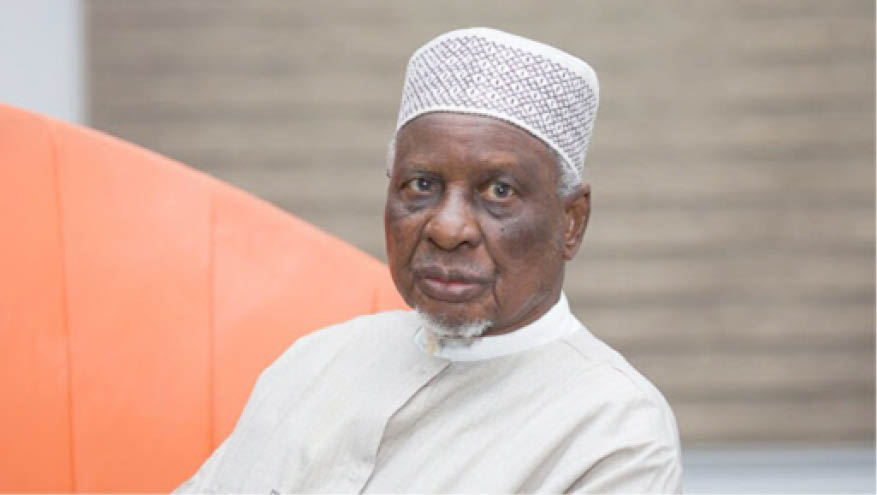Tanko Yakasai, an elder statesman and former National Publicity Secretary of Northern Elements Progressive Union, NEPU, reminisces on how NEPU was formed and opines on what the PRP and young Nigerians can do to reincarnate the ideals of NEPU.
How did NEPU come about?
The movement for political awareness in Nigeria came about mainly after the conclusion of the Second World War.
Can the North retain political power in 2023? (I)
2023: APC youths beg Atiku, Saraki, Tambuwal others to return
During the war, large numbers of soldiers were recruited from former British colonial territories and Nigeria was one of them. By the time the Nigerian contingents returned to Nigeria, that period saw the emergence of political activism particularly from the nationalistic background. That was when the National Council for Nigerians and Cameroons (NCNC) was formed in 1944.
With that political awakening, there was an agitation that the British approach to consultation with Nigerians was wrong, as it was the British people that were appointing the people they knew among Nigerians (largely traders working with British firms or civil servants) to advise them on what they thought Nigerians wanted. The nationalists wanted Nigerians to be allowed to elect the people among themselves who would represent them in dealing with the colonial authorities.
The first agenda adopted by the NCNC was to tour the country to educate Nigerians on the need for the British to allow Nigerians elect their own representatives and take advantage of the tour to raise funds to send delegates to the colonial office in London to drive home the first objective.
It was that tour that triggered my interest in politics because that time parents were advised against allowing their children to attend the NCNC rally for the purported fear that the children could be adopted for ritual sacrifices, this was just to scare parents. With two of my friends, we decided to go and see what the NCNC people looked like.That tour mobilised public opinion in the whole country and particularly in the north and that was the reason why after the tour, some youths decided to form organizations, some with politics in mind and some for unity. That was when organisations like Kano Youth Association (Jam’iyyar Samarin Kano), Sokoto, Bauchi, and other places did their own. Eventually, these youth organisations came together to form the Jam’iyyar Mutanen Arewa a Yau, led by prominent people like Dr. I.B.A. Dikko, Abubakar Umar, Abdulkadir Makama, etc. That was the background that led to the formation of political activism or awareness in Northern Nigeria.
After the tour, northerners came together to form Jam’iyyar Mutanen Arewa, which later became Northern People’s Congress (NPC). But when NPC was formed and it held its first meeting I think in June/July 1949 in Kano, there was a heated debate on whether the organisation should be a political party or a cultural organisation. I was not invited but I was at the meeting out of curiosity. As most of the delegates that attended the meeting were Native Authority officials, they entertained fears that British colonial officers and traditional rulers would not like them to participate in partisan politics, so they used a strategy to say that the decision should be delayed until they consulted with their constituencies ahead of the next meeting.
Some of the activists in NPC like Sa’adu Zungur and Aminu Kano that wanted the Jam’iyyar Mutanen Arewa to be a political organisation suspected that the decision even at the next meeting would not be different and they decided in a private consultation that a political organisation should be formed in anticipation that when they got to the next meeting and their idea was rejected, they would sell that political party to the delegates that agreed with them. That was the background that led to the formation of NEPU. The name NEPU was first muted in Kano also by some radical elements like Habibu Raji Abdallah, Maji Abdullahi (senior brother of late Emir of Kano, Ado Bayero), Malam Abubakar Zukoji, etc, with the earlier formation of the Northern Element Progressives Association.
A meeting was called on August 8, 1950 by one Yoruba man from Kabba called Bello Ijumu, who was working in UAC and was resident in Sabon Gari, Kano. He invited 50 people from the two organisations in Kano at that time, the Kano Youth Association and Taron Masu Zumunta (TMZ) but because of the rain that evening, only eight people were able to attend the meeting. They decided to form a political organisation and called it NEPU. They took that name to the next meeting of Jam’iyyar Mutanen Arewa in Jos and when it was agreed that Jam’iyyar Mutanen Arewa should not be a political association but cultural association, which led to the selling of the idea of NEPU to delegates disposed to having a political organisation.
But the idea of forming a party before the next meeting of Jam’iyyar Mutanen Arewa was suggested by Malam Aminu Kano, who was then a principal of Teachers Training College, Maru in Sokoto. He attended the first convention of NEPU at the beginning of 1951 after he resigned from his position as principal. And that was how NEPU was formed.
What were the prevailing factors or ideas of NEPU that made the party to be accepted by the common man (the talakawas)?
At that time the Native Authority (NA) system was a very oppressive system in the hands of the colonial masters to coerce people to subject to the whims and caprices of the colonial system through the emirs and traditional rulers in Northern Nigeria. Among the oppressive measures being used by traditional rulers was arbitrary taxation. Another method was that at the beginning of the rainy season, ordinary farmers were compelled by the NA officials to go to the farms of the traditional rulers to work before going back to their own farms, at times, it was already too late for the farmers to plant anything on their own farms. In addition to this, when money is appropriated for a project for public use, the NA officials would appropriate the funds to themselves and force the common people to go and do the work free of charge.
By the time NEPU was formed, it focused attention on the forced labour that was a source of concern to the common people. That appeal was readily accepted by the people. It was a sigh of relief for them to see people who were struggling to emancipate them from this oppression. Hence, they embraced the party. This was the reason why NEPU was stronger in the bigger NA areas.
In the current dispensation, what are some of the ideas of NEPU that are still relevant?
One of the cardinal issues NEPU was fighting for was for people to elect their own representatives, which they called the democratisation of the NA system. Previously, the system was such that the emir was the head of the NA, just like the cabinet system, with councilors who are appointed by the emir himself. So, there is no way that policies favourable to the common people would be adopted. NEPU came out to fight this. The same with the Legislative Council, which was a national set up with representatives from all over the country that were nominated by the British colonial authorities. NEPU propagated the idea of emancipation of the people. Parts of the reform or policies introduced, e.g. direct election and universal adult suffrage were part of the strength of the campaign of NEPU.
How related do you consider the present day PRP and NEPU?
What relates NEPU and PRP is that when the National Party of Nigeria (NPN) was formed, Malam Aminu Kano was among the founding fathers. He left NPN because of some differences and his supporters urged him to form PRP and because most of those supporters were either old NEPU members or NEPU sympathisers like Balarabe Musa. So, the relationship is that those NEPU supporters that went along with Malam Aminu Kano to form PRP attracted some people who had no previous relationship with NEPU as a kind of transition.
When PRP was proscribed, the idea was still there. So, at any given opportunity, some of their supporters or PRP will try to revive it.
With the changes in the legal system, Balarabe Musa and his colleagues challenged the ban of PRP and the court upheld their position and this is the reason you now have some people calling themselves PRP. But what made PRP relevant to NEPU was that by the time Malam Aminu Kano came out of NPN, mostly NEPU members from the North joined him and younger elements also joined and this is what is repeating itself even today, I learnt that even Jega (former INEC chairman) has now joined. However, it is an arduous task because the problem is that the sacrifice demanded by organisations like NEPU is very high.
Do you see this new PRP being able to replicate the successes of PRP of 1979-1983?
I think yes, but for a different reason. The main reasons for PRP’s success in two states were different. Its success in Kano was largely due to the remnants of NEPU leadership. In Kaduna State, NEPU was strong in Zaria but not in Katsina except in the southern part of Katsina (Malumfashi and Funtua). I don’t know how strong the remnants of PRP are now in the polity in the North. It is two things-how strong they are and how committed are they to make the needed sacrifices. This is because to do PRP or NEPU, you need people who can sacrifice their time and people who have money and will be prepared to donate generously. The two have to come together to make it possible. I don’t know (if they have these) because I have never been a PRP.
When NEPU was set up, almost everyone involved was a youth. In that line, how do you see present Nigerian youth’s involvement in the party politics?
The majority of the voters are youth and luckily for them, they are better educated than in our time. But, the area of problem is that of sacrifice. Unfortunately, because of what happened during the military era and subsequent periods of politicking, money has penetrated the system that unfortunately the spirit of sacrifice that was prevalent even at the time of PRP (1979-1983) is not likely to be available at this time. Whether that can be regenerated or not is to be seen. This is because, without people that will sacrifice their time and money, you cannot make it. I don’t know whether people are prepared to make these sacrifices. The two must be there for a change to take place. There are some of them that are rich, but are they ready to prepare to fund those who don’t have money to make the difference? This is the challenge that will present itself to anybody who wants to reincarnate PRP or NEPU.

 Join Daily Trust WhatsApp Community For Quick Access To News and Happenings Around You.
Join Daily Trust WhatsApp Community For Quick Access To News and Happenings Around You.


